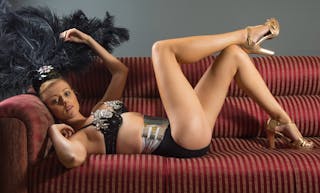The Wonder Woman Poster Has Fans Thinking She's Gay or Bisexual: Exploring LGBTQ Representation in Superhero Films
Curiosity and speculation are nothing new when it comes to beloved fictional characters. Fans love to dive deep into the details of their favorite superheroes, and sometimes that means questioning their identities. It's all part of the fun of being a fan! If you're ready to explore more thrilling topics, check out this exciting website for a new adventure.
The recently released poster for the highly anticipated Wonder Woman sequel, "Wonder Woman 1984," has sparked a heated debate among fans and members of the LGBTQ community. The poster features the iconic superhero, played by Gal Gadot, in a powerful and striking pose, with an array of vibrant colors and a bold, retro aesthetic. However, it's not the visual appeal of the poster that has fans talking – it's the subtle and intriguing hints of Wonder Woman's sexuality that has ignited a passionate discussion across social media platforms and online forums.
Experience the excitement in Pittsburgh and get ready for a wild ride!
Wonder Woman has long been regarded as a symbol of female empowerment and strength, and her character has been a source of inspiration for many. However, her romantic relationships and sexual orientation have always been somewhat ambiguous in the comic books and on the big screen. While Wonder Woman has been depicted as having romantic relationships with male characters, there has also been speculation and interpretation of her character as potentially being gay or bisexual. The new poster for "Wonder Woman 1984" has only added fuel to the fire, as fans dissect and analyze every detail in an attempt to uncover the truth about the superhero's sexuality.
Check out this guide to mature hookup in Glasgow and find love in all the right pubs!
Exploring LGBTQ Representation in Superhero Films
Explore the best female domination porn games and discover a new and exciting way to spice up your adult gaming experience.
The debate surrounding Wonder Woman's sexuality brings to light the larger issue of LGBTQ representation in superhero films. While there have been significant strides in recent years towards more diverse and inclusive representation of LGBTQ characters in mainstream media, the superhero genre has been slow to embrace and explore the complexities of sexual orientation and gender identity. The lack of openly LGBTQ superheroes in major Hollywood blockbusters has been a point of contention for many fans and advocates for diversity and inclusion in the entertainment industry.
The debate over Wonder Woman's sexuality serves as a reminder of the importance of LGBTQ representation in superhero films, and the impact that it can have on audiences, particularly young LGBTQ individuals who are seeking characters and stories that reflect their own experiences and identities. The inclusion of LGBTQ characters in superhero films can not only provide representation and visibility for the LGBTQ community, but it can also challenge and subvert traditional gender and sexual norms, and promote acceptance and understanding among audiences.
The Power of Speculation and Interpretation
The speculation and interpretation of Wonder Woman's sexuality also highlights the power of fan engagement and the impact of representation in popular culture. Fans of the character have taken to social media to express their excitement and support for the possibility of Wonder Woman being portrayed as a member of the LGBTQ community. The conversations and debates surrounding Wonder Woman's sexuality have sparked a sense of community and solidarity among fans, as they rally behind the idea of a more diverse and inclusive portrayal of the iconic superhero.
The power of speculation and interpretation also speaks to the broader significance of representation in popular culture. The ways in which characters and stories are depicted in media can have a profound impact on the perceptions and attitudes of audiences. By exploring and embracing diverse and complex representations of sexuality and gender identity, superhero films have the potential to challenge and disrupt traditional narratives and stereotypes, and create more inclusive and affirming spaces for all viewers.
The Impact of LGBTQ Representation in Dating and Relationships
The debate over Wonder Woman's sexuality has also sparked discussions about the impact of LGBTQ representation in the realm of dating and relationships. For many individuals in the LGBTQ community, seeing themselves reflected in popular culture can have a profound effect on their sense of identity and self-worth. The inclusion of LGBTQ characters and stories in mainstream media can provide a sense of validation and empowerment for individuals who may feel marginalized or invisible in society.
In the context of online dating and casual encounters, LGBTQ representation in popular culture can also play a significant role in shaping the experiences and expectations of individuals seeking connections and relationships. The portrayal of LGBTQ characters in superhero films and other forms of media can serve as a catalyst for more open and inclusive conversations about sexuality and identity, and create opportunities for individuals to explore and express their own desires and preferences in a safe and supportive environment.
The ongoing debate over Wonder Woman's sexuality serves as a reminder of the power and potential of LGBTQ representation in popular culture, and the impact that it can have on individuals and communities. As fans eagerly await the release of "Wonder Woman 1984," the discussions and speculations surrounding the superhero's sexuality continue to spark important conversations about diversity, inclusion, and the potential for more affirming and authentic representations of LGBTQ identities in mainstream media.
- https://hookup-blog.ua-sex.com/posts/
- https://find-a-girlfriend.timebombrecordings.com/posts/heartbreak-coaches-will-help-you-perfect-the-art-of-the-breakup/
- https://meet-women.fu-direct.net/posts/skirt-club-the-uks-first-sex-club-for-bicurious-women/
- https://meet-women.timebombrecordings.com/posts/first-time-sex-with-a-man-12-women-on-what-its-like-to-be-a-guys-first-time/
- https://hookup-blog.getweps.com/posts/ditching-the-dating-apps-can-we-still-find-love-irl/
- https://hookupsites.themountaintopplay.com/
- https://dating-guide.ua-sex.com/posts/dating-as-a-gay-disabled-woman-jessica-kellgrenfozard-youtuber/
- https://meet-singles.thehottieandthenottie.com/posts/my-best-sex-ever-was-a-quickie-with-a-complete-stranger/
- https://free-dating-website.getweps.com/posts/sex-fanfiction-10-best-sexy-fan-fiction/
- https://dating.themountaintopplay.com/posts/calling-my-dating-app-matches-was-so-worth-it/
- https://sex-chat.campsupernow.com/posts/lily-allen-sex-toy-lily-allen-womanizer-liberty-clit-sucker/
- https://online-hookup.timebombrecordings.com/posts/strapons-best-sex-toys-for-pegging/
- https://location-dating.thehottieandthenottie.com/posts/low-sex-drive-low-libido-tips/
- https://dating-guide.campsupernow.com/posts/polyamory-and-nonmonogamous-dating-books-to-read-now/
